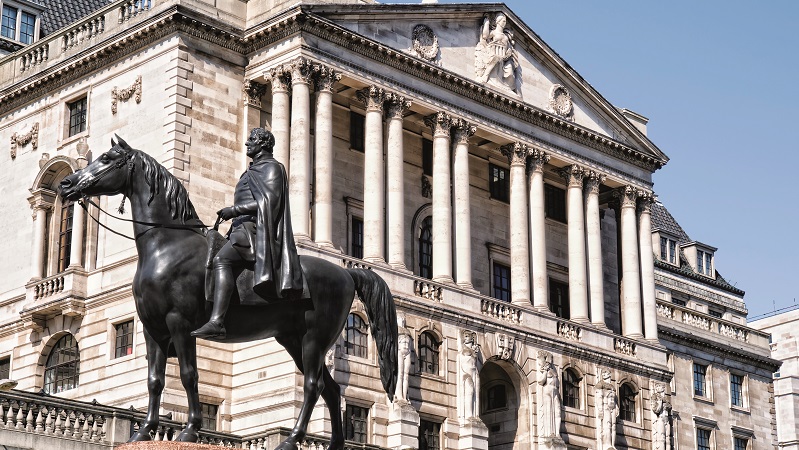The UK economy slumped further than expected in February, signalling a slowdown may happen sooner than anticipated, but this is unlikely to curtail the Bank of England’s rate rise agenda.
GDP came in at just 0.1% in February, according to the Office for National Statistics, down 0.8% from January and weaker than the 0.3% uplift economists had forecast.
The services sector was the main contributor to February’s growth, with Covid-stricken tourism-related industries enjoying a massive bounce back as the government scrapped most travel restrictions for fully vaccinated individuals.
Travel agency, tour operators and reservation services rose by 33.1% during the month, while accommodation and food service activities were up 8.6%.
But this was dampened by falls in construction (0.1%) and production (0.6%), with car manufacturing badly hit by chip shortages and spiralling costs.
Global manufacturing downturn
“It was the month the UK was supposed to start ‘living with Covid’ but if February is an indication of what that life will look like, the UK economy is in trouble,” said AJ Bell financial analyst Danni Hewson.
February’s health check does not fully reflect Russia’s invasion of Ukraine, which has exacerbated supply chain pressures and sent energy prices, and the cost of living, skyrocketing.
“Supply chains are once again succumbing to pressures. Industrial production globally is slowing down, as a result of supply shortages, escalating input costs and rising geopolitical pressures,” said George Lagarias, chief economist at Mazars.
“The global manufacturing downturn makes the UK economy more dependent on services for the foreseeable future and thus more susceptible to the inflation scare and a potential resurgence in the pandemic.”
UK economy to contract in Q2
Derrick Dunne, CEO of You Asset Management, said February’s data suggests the beginnings of a slowdown for the UK economy.
The Office for Budget Responsibility has already slashed growth for the year to 3.8% from its previous estimate of 6% due to the fallout from the war in Ukraine, with growth for 2023 also weaker at 1.8%.
“As it stands, GDP currently sits at 1.5% above pre-pandemic levels, however with consumer confidence plummeting and inflation expected to rise once again on Wednesday, fears that the UK could enter a recession this year are rife,” Dunne said.
ING predicts Q1 GDP to come in at around 1% before turning negative in the second quarter.
“We expect a small contraction of -0.2/-0.3%, though for now, the jury’s out on whether that evolves into a technical recession (requiring a subsequent fall in GDP in the third quarter),” said developed markets economist James Smith.
BoE will stay the course to curb soaring inflation
Despite the UK’s recovery starting to stall, Hargreaves Lansdown senior investment and market analyst Susannah Streeter thinks the Bank of England will stay on its path of rate hikes this year.
In March, the monetary policy committee voted 8-1 to lift the base rate to 0.75%, with some expecting rates could hit 2% by year-end to curb rising inflation, which is expected to hit 8% in Q2.
Streeter said: “The saving grace for now are the piles of lockdown savings which many consumers were able to build up during the pandemic and which are now a soft pillow to land on as the headwinds of higher prices whip up, but this cushion could flatten as the year progresses. So, policymakers are likely to hold off from mirroring the Federal Reserve’s much more aggressive stance in terms of tightening monetary policy.”
See also: Russian invasion unlikely to force central banks off course







